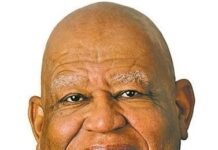 There have been many reports of cab drivers refusing to take passengers to predominantly Black neighborhoods, fearing for their own personal safety or White people crossing the street to avoid passing Black youth on the sidewalk. But a new study led by Christopher Browning, a professor of sociology at Ohio State University found that young Black males also feel less safe when they travel to neighborhoods that are predominantly White.
There have been many reports of cab drivers refusing to take passengers to predominantly Black neighborhoods, fearing for their own personal safety or White people crossing the street to avoid passing Black youth on the sidewalk. But a new study led by Christopher Browning, a professor of sociology at Ohio State University found that young Black males also feel less safe when they travel to neighborhoods that are predominantly White.
Researchers gave a large group of Black youths smartphones that tracked their locations for a week and asked the participants to rate how safe they felt (among other questions) five times per day. Results showed that African American boys felt less safe even in areas that were only modestly more White than where they usually spent time.
“It doesn’t have to be a majority White neighborhood for African American boys to feel more threatened,” Professor Browning said. “It just has to be more White than what they typically encounter.”
The data showed that African American girls did not feel less safe in White neighborhoods.











Not terribly surprising. But the character of the neighborhood makes a huge difference and strangers disregard this at their peril
Doubtful if the results would be much different if the situations were reversed. How much of this is tribal and how much cultural may be difficult to determine. To disregard the feeling may be hazardous to health
I know that I don’t feel particularly comfortable in “more white” neighborhoods and spaces and I’m a middle-aged black male. My dream isn’t to live in the “whitest” neighborhood I can afford like it is for a lot of blacks.
Blacks see “white neighborhoods” as havens because black neighborhoods are criminalized with rough and unappealing infrustruture, little to no access to quality supermarkets/grocery stores, inferior schools due to low tax base, litered trash all over the place, and the mantality of the people inhabiting such environments.
I know because I grew-up in a diverse, well maintained neighborhood, then ventured out to black neightborhoods due to cheaper rent once I graduated from college.